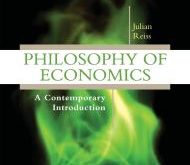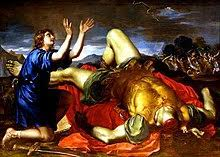När penningsystemet inte levererar Ett ännu tyngre ansvar bär regeringen som trots den lägsta statsskulden på 40 år valt att fortsätta betala av ännu mer. Den offentliga skuldsättningen i Sverige väntas 2021 sjunka under 30 procent av BNP, vilket innebär att regeringen är skyldig enligt lag att förklara för Riksdagen hur det kommer sig att man inte spenderat mera pengar. Regeringens tvångsmässiga avbetalningar har uppmärksammats i internationell...
Read More »Cos’è la MMT?
MMT è due cose: è una lente di osservazione dei processi di creazione e circolazione del denaro, ed è una ricetta per la piena occupazione e la stabilità dei prezzi. Quanto alla prima, i contributi migliori di MMT sono quelli che, sviscerando i nessi tecnici tra banca centrale, banche e Tesoro, dimostrano che il denaro a disposizione della spesa pubblica proviene sempre, inevitabilmente, dalla banca centrale, e che la differenza tra finanziamento sul mercato e monetizzazione...
Read More »The gender wage gap
The gender wage gap Uber has conducted a study of internal pay differentials between men and women, which they describe as “gender blind” … The study found a 7% pay gap in favor of men. They present their findings as proof that there are issues unrelated to gender that impact driver pay. They quantify the reasons for the gap as follows: Where: 20% is due to where people choose to drive (routes/neighborhoods). Experience: 30% is due to experience … Speed:...
Read More »The experimental dilemma
We can either let theory guide us in our attempt to estimate causal relationships from data … or we don’t let theory guide us. If we let theory guide us, our causal inferences will be ‘incredible’ because our theoretical knowledge is itself not certain … If we do not let theory guide us, we have no good reason to believe that our causal conclusions are true either of the experimental population or of other populations because we have no understanding of the mechanisms that are...
Read More »Finding the cace (student stuff)
Finding the cace (student stuff) .[embedded content]
Read More »Are your instrumental variables — really — relevant, exclusive, and exogenous?
Are your instrumental variables — really — relevant, exclusive, and exogenous? .[embedded content]
Read More »Calculus for Economists
Gabriel Sterne complains about economists' loose use of mathematical terminology: Of course, it's not just economists who use "increase" and "accelerate" interchangeably. But economics is a mathematical discipline, and in mathematics, "increase" and "accelerate" mean different things. So is Gabriel's observation true, and if it is, is it a problem?To test Gabriel's hypothesis, I ran a little Twitter test. I asked this question: This was of course far from rigorous: the sample was...
Read More »David and Goliath
Yesterday, someone who had been watching one of my (all too frequent) Twitter arguments about money made this comment: The "unknown person with few followers" was my protagonist. And the blue tick "classical expert" was me. I am Goliath. But ten years ago, I was David. Armed only with Blogger and Twitter, and my knowledge of banking and finance, I set out to slay the financial Philistines that rampaged across the internet in the aftermath of the 2008 financial crisis. I published my first...
Read More »Some methodological perspectives on causal modeling in economics
Some methodological perspectives on causal modeling in economics Causal modeling attempts to maintain this deductive focus within imperfect research by deriving models for observed associations from more elaborate causal (‘structural’) models with randomized inputs … But in the world of risk assessment … the causal-inference process cannot rely solely on deductions from models or other purely algorithmic approaches. Instead, when randomization is...
Read More »Responsible science
.[embedded content]
Read More » Heterodox
Heterodox






